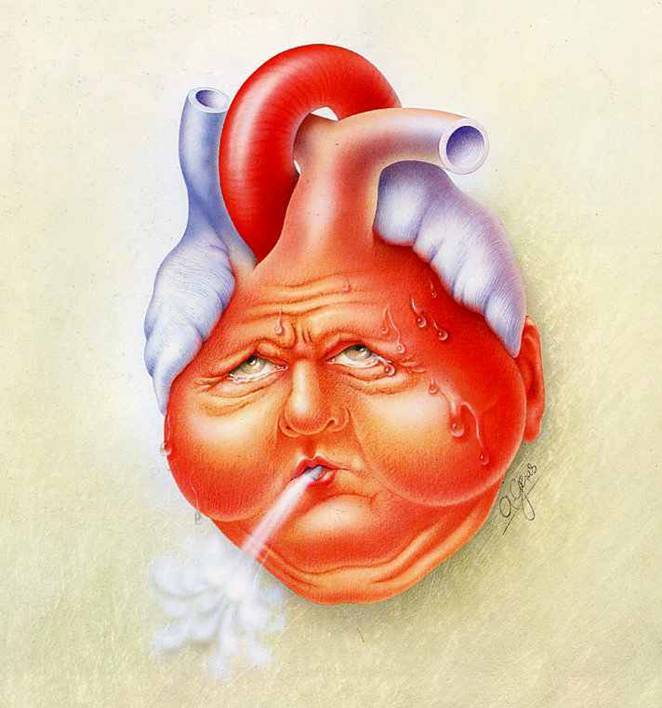Heart & Cardiovascular
Heart Failure
By I.K. (staff writer) , published on November 09, 2020

Medicine Telehealth Health Heart Failure Heart & Cardiovascular
Heart failure, also referred as congestive heart failure, happens when the heart muscle does not pump blood as effectively as it should. Certain disorders, such as narrowing of the arteries of your heart (coronary artery disease) or elevated blood pressure, eventually leave the heart too weak or rigid to fill and pump effectively. Not all problems that lead to heart disease can be cured, but treatment can reduce the signs and effects of heart failure and help you live longer. Lifestyle improvements such as exercise, salt reduction in your diet, stress control and weight loss can enhance your quality of life.
Symptoms
- Shortness of breath (dyspnea) while you exercise yourself or lie down
- Fatigue and weakness
- Inflammation in your legs, ankles, and legs
- Rapid or irregular heart rhythms
- Inability to exercise
- Persistent cough or wheezing with white or pink tinged phlegm
- Increased need for urinating at night
- Swelling of the belly (ascites)
- Quite fast weight gains due to fluid retention
- Appetite and nausea
- Difficulty focusing or declining alertness
- Chest pain if the heart failure is triggered by a heart attack
Causes
Heart disease also happens when other problems have impaired or affected the heart. However, the heart would not need to be damaged to induce heart failure. That can even happen if the heart gets too stiff.
All of the following conditions may harm or injure your heart and may cause heart failure. Any of these could be present without you knowing it:
- Coronary artery disease. Coronary artery disease is the most prevalent type of heart disease and is the most common cause of heart failure.
- High blood pressure (hypertension). If your blood pressure is raised, your heart will have to function faster than needed for normal flowing of blood in your body. Over time, this additional workout will make the heart muscle too stiff or too unproductive to pump blood efficiently.
- Faulty heart valves. Your heart valves keep blood pumping into the heart in the right direction. A weakened valve — due to a cardiac defect, coronary artery disease, or cardiac infection — forces the heart to function faster, which can weaken it over time.
- Damage to the heart muscle (cardiomyopathy). Due to damaged muscles heart has to work strenuously which results in heart failure
- Myocarditis. Myocarditis is a heart muscle inflammation. It is most often caused by a virus, like COVID-19, which can lead to left-sided heart failure.
- Heart defects you're born with (congenital heart defects)
Prevention
The secret to avoiding heart disease is to reduce risk factors. You will monitor or remove all of the risk factors for heart disease — such as elevated blood pressure and coronary artery disease — by making lifestyle improvements along with any required medications.
- Stop smoking
- Control of certain diseases, such as elevated blood pressure and diabetes
- Stay Physically active
- Eating healthy food
- Maintaining a balanced body weight
- Decreasing and managing depression
References
https://www.ncbi.nlm.nih.gov/books/NBK430873/
https://www.ncbi.nlm.nih.gov/pmc/articles/PMC4961993/
https://www.ncbi.nlm.nih.gov/pmc/articles/PMC1117436/
Find articles related to: Medicine Telehealth Health Heart Failure Heart & Cardiovascular
More articles about Heart & Cardiovascular
Back to the Health Tips Index




